Oil price posts two-year highs - but how long can it last?
Brent rose above $59 a barrel this week, its best third-quarter showing since 2004

A free daily email with the biggest news stories of the day – and the best features from TheWeek.com
You are now subscribed
Your newsletter sign-up was successful
Oil price slide drives Russia to 'junk' status
27 January
Russia's sovereign debt has been downgraded to "junk" status for the first time in a decade by ratings agency Standard & Poor as economists anticipate a "painful recession" for the country, which is suffering from the effects of the low oil price and international sanctions.
S&P said the downgrade was caused by Russia's reduced flexibility to cut interest rates and a weakening of its financial system.
The Week
Escape your echo chamber. Get the facts behind the news, plus analysis from multiple perspectives.

Sign up for The Week's Free Newsletters
From our morning news briefing to a weekly Good News Newsletter, get the best of The Week delivered directly to your inbox.
From our morning news briefing to a weekly Good News Newsletter, get the best of The Week delivered directly to your inbox.
The economy is battling currency depreciation, collapsing oil export revenues and Western sanctions over Ukraine. The rouble tumbled further on the news of the downgrade, dropping to 68.76Rb to the dollar.
It is possible that other ratings companies will follow S&P's lead and that Russian corporate bonds and banks may also face downgrades.
The lower the debt rating, the more expensive it becomes to borrow and some investors are ruled out from holding the debt at all.
The Russian economy contracted for the first time in five years in November, with economists "anticipating a painful recession in Russia this year", says the Financial Times. Russia is heavily dependent on oil exports, and with global oil prices having halved since June last year its economy has struggled to maintain momentum.
A free daily email with the biggest news stories of the day – and the best features from TheWeek.com
Last night, Russian finance minister Anton Siluanov said the downgrade showed "pessimism" and failed to take into account stronger aspects of the Russian economy. "There's no reason to dramatise the situation," he said.
But Mohamed El-Erian at Bloomberg warns that the downgrade will "worsen the country's economic and financial implosion" and is likely to lead to "further currency depreciation, capital flight, and could advance the timetable for import and capital controls".
The broader economic implications will depend on the reaction of Vladimir Putin, says El-Erian. There is hope that Putin will draw back from Ukraine and open a better dialogue with the West, but others fear he will continue his "regional adventures" to distract the Russian public from the imploding economy, prompting further sanctions from the West and then countersanctions from Moscow.
"The result would be deeper economic and financial turmoil in Russia, and a return to recession for Europe – both of which would contribute to a higher risk of global financial instability," says El-Erian.
The oil price steadied this morning at $48 per barrel after a volatile day of trading yesterday. Nevertheless, it remains close to the lowest it has been for six years.
Oil price rallies as Opec predicts end to slump
26 January
The price of oil dropped by two per cent this morning before the secretary-general of Opec sent it climbing again by saying that he expected the market to bottom out at about its current level.
The gains reinforced last week's upswing in the wake of the death of Saudi Arabia's ruler King Abdullah. But the market remains "jittery" in spite of the incoming King Salman's efforts to ensure a smooth transition of power, Reuters reports, and the price had slipped back below Friday's close by 4pm.
Abdullah al-Badri, secretary general of Opec, prompted the rally by saying that he believed oil prices were set to recover. "Now the prices are around $45-$55," he said, " I think maybe they reached the bottom and will see some rebound very soon."
Brent crude climbed from a morning low of $47.61, edging into positive territory before dipping again. At 4pm, it was trading at $48.57.
After the death of King Abdullah oil prices rose briefly above the $49 mark last week, but slumped again this morning due to growing uncertainty in Europe after the victory of the far-left Syriza party in Greece.
"Post Greek election Eurozone growth has renewed uncertainty, coupled with Saudi Arabia's new king's commitment this morning to maintain the policies of his predecessor - meaning no tightening in sight of Opec oil supply," Lewis Sturdy, sales trader at London Capital Group told the Daily Telegraph.
"This has forced pressure once again on both West Texas Intermediate and Brent prices."
Nine oil companies are due to report their earnings this week, including Shell and Chevron. Their financial data "should reveal the extent of the damage to the producers profits and spending plans since the price of crude began its descent in mid-2014", the Telegraph says.
Oil price spikes as new Saudi king takes charge
23 January
The death of Saudi Arabian ruler King Abdullah has led to a spike in the oil price despite a swift indication that there would be no change in policy from the new Saudi leadership.
Saudi Arabia's refusal to cut production has helped to force down the oil price - a move which had led to tensions within Opec as other oil-producing countries, notably Iran and Venezuela, argued that supply should be restricted in order to bolster the price.
The announcement of King Abdullah's death created enough uncertainty about the future direction of Saudi policy to push up the oil price after several months of steady decline.
Brent crude futures rose to a high of $49.80 a barrel shortly after trading started today, before falling back to $49.20 by 3.15pm UK time. The $49.20 per barrel price is still a rise of 76 cents on yesterday. In the US, WTI crude futures rose as high as $47.76, before easing back down to $47.
Abdullah was 90 years old and had been de-facto ruler, then king, of the world's top oil-exporting nation since his brother became ill in 1995. Abdullah's half-brother Crown Prince Salman succeeded him as monarch, quickly naming his own heir as his half-brother Muqrin in a move designed to avoid a potential succession crisis, The Independent reports.
The new regime also moved quickly to steady the oil markets.
"Saudi state television said King Salman intended to keep oil minister Ali al-Naimi in place, suggesting the country's oil policy would remain unchanged," Reuters reports.
Abdullah's death comes during the biggest shifts in the oil market for decades. The oil price has fallen by more than 50 per cent since June last year, and fracking has transformed the US from the world's biggest oil importer to one of its biggest producers.
Throughout the American turnaround, Abdullah has maintained a firm policy of keeping oil output steady in order to protect the Opec nations' market share from rival producers.
As well as uncertainty in the market, Saudi Arabia is facing regional turmoil. It shares a long frontier with Iraq, where terror group IS are running amok, and also borders Yemen and Egypt, where the Arab Spring had a profound impact.
While the political problems may prove intractable, analysts have suggested that today's doubts about energy policy will soon evaportate, as will the gains in oil price.
"As we are uncertain of how the new king would react to the current supply glut, we believe that the market is pricing in this uncertainty, causing prices to spike," said Daniel Ang, an investment analyst at Phillip Futures in Singapore, quoted in The Guardian.
"However, this premium would likely only persist temporarily. This premium should wear off once the market is clear of the new king’s view on the oil situation."
Oil price will stay low for 'two or three years' – BP boss
22 January
Bob Dudley, the head of BP, says oil prices – which have fallen by more than 50 per cent since June last year – will stay low for "certainly a year" and "probably two and maybe three years". He said he was "sure" petrol prices would fall below £1 per litre.
Dudley also warned that the low oil price would mean falling investment in North Sea oil and "significant workforce reductions" in the energy sector worldwide. His words will add to fears that job losses will follow in Scotland.
Speaking to the BBC at the World Economic Forum in Davos, Switzerland, the chief executive said: "I think Scotland is going to be under some stress because of these low oil prices."
He said BP's two large North Sea oil projects are "challenged" by the price fall, adding: "But we're in the North Sea for the long term. We have a large workforce in Scotland. There will be activities that we needed to pare back anyway."
Dudley said other countries which would suffer under the current pricing included Norway, Russia, Venezuela, Nigeria and Angola. Across the globe, the energy industry could expect "significant workforce reductions", he said.
Looking further ahead, Claudio Descalzi, chief executive of Italian oil group Eni, said retrenchment in the oil industry would create shortages of supply in the longer term. This in turn might cause sharp price rises in four or five years' time.
Between 2010 and 2014 the price was relatively stable, at $110 per barrel – but Brent crude has now fallen to around $48. Descalzi said if Opec did not cut supplies, the next spike in prices might see oil top $200 a barrel.
Oil price shock: BP seeks a silver lining
20 January
Despite the risk it poses to energy profits and jobs, the falling oil price may bring good news of sorts to BP.
The company will attempt to convince an American court that falling revenues mean that fines relating to the Deepwater Horizon spill in 2010 should be lower than previously expected.
The oil price is currently sitting 40 per cent below where it was at the time of the disaster, in which an estimated 3.2 million barrels of oil spilt into the Gulf of Mexico.
Legal action is underway to determine BP's punishment. As a court prepares to considers how much the company should pay for each barrel released, BP's lawyers say the fine should be set at the lower end of the range.
"The government is seeking a $4,300 fine for each one," the Wall Street Journal reports. "BP contends that fines should be capped at $3,000 per barrel."
A fine at the upper end of the range would amount to a fine of $13.76 billion. At the lower end it would be $9.6 billion.
Written arguments have already been submitted, and the hearing will begin on Tuesday in a federal court in New Orleans.
"Even if the fine is capped at BP's request," The Independent reports, "it would be by far the largest settlement in the history of the Clean Water Act. The current record is the $1bn paid by Transocean Ltd. in 2013 for its part in the same oil spill.
Fitch Ratings said last week that the falling oil price has left the company less able to cope with a penalty of that scale, and other analysts "have been speculating that a slimmed-down BP could become a takeover target once the Deepwater Horizon litigation concludes," says the Wall Street Journal.
-
 The broken water companies failing England and Wales
The broken water companies failing England and WalesExplainer With rising bills, deteriorating river health and a lack of investment, regulators face an uphill battle to stabilise the industry
-
 A thrilling foodie city in northern Japan
A thrilling foodie city in northern JapanThe Week Recommends The food scene here is ‘unspoilt’ and ‘fun’
-
 Are AI bots conspiring against us?
Are AI bots conspiring against us?Talking Point Moltbook, the AI social network where humans are banned, may be the tip of the iceberg
-
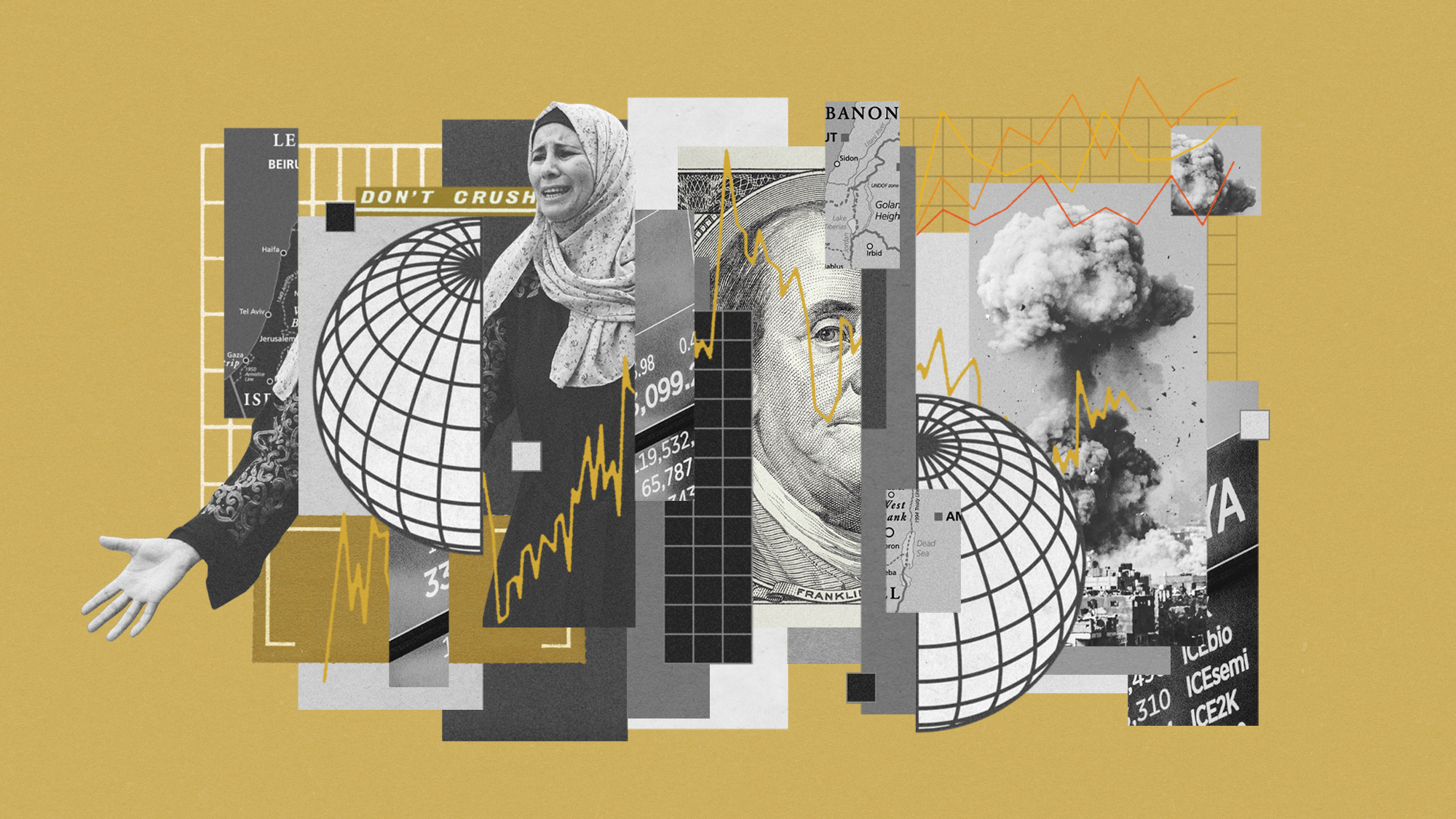 How might the Israel-Hamas war affect the global economy?
How might the Israel-Hamas war affect the global economy?Today's Big Question Regional escalation could send oil prices and inflation sky-high, sparking a worldwide recession
-
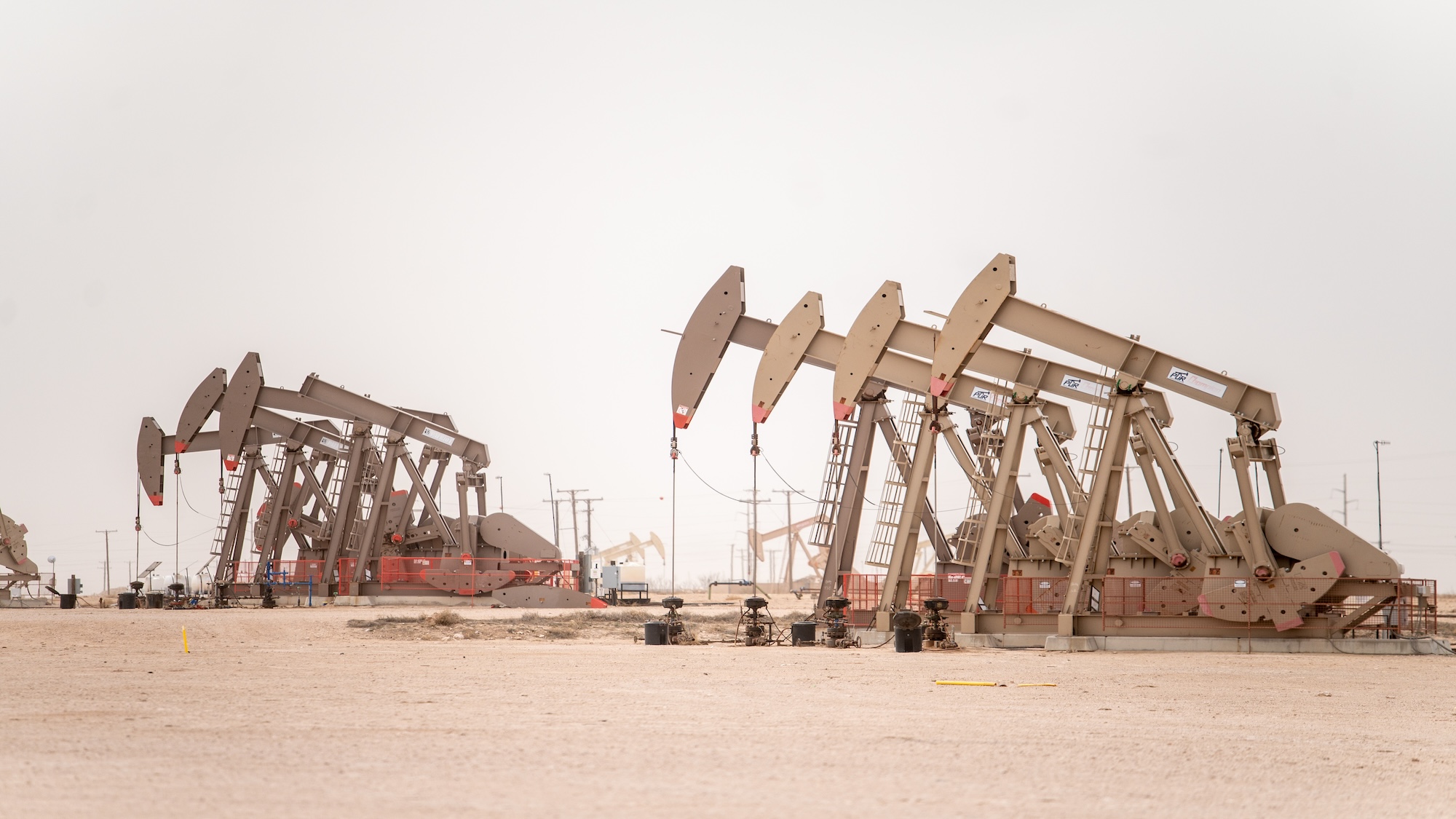 Recent mega-mergers could signal a turning point for the US oil industry
Recent mega-mergers could signal a turning point for the US oil industryTalking Point Both Chevron and Exxon have recently spent billions to acquire smaller oil companies
-
 Has Saudi Arabia lost control of oil prices?
Has Saudi Arabia lost control of oil prices?Today's Big Question Kingdom goes it alone to cut production, risking tension with US and reigniting cooling inflation in Europe
-
 US angered by Opec+ oil cut
US angered by Opec+ oil cutSpeed Read Energy prices to rise further as producers slash supply by two million barrels a day
-
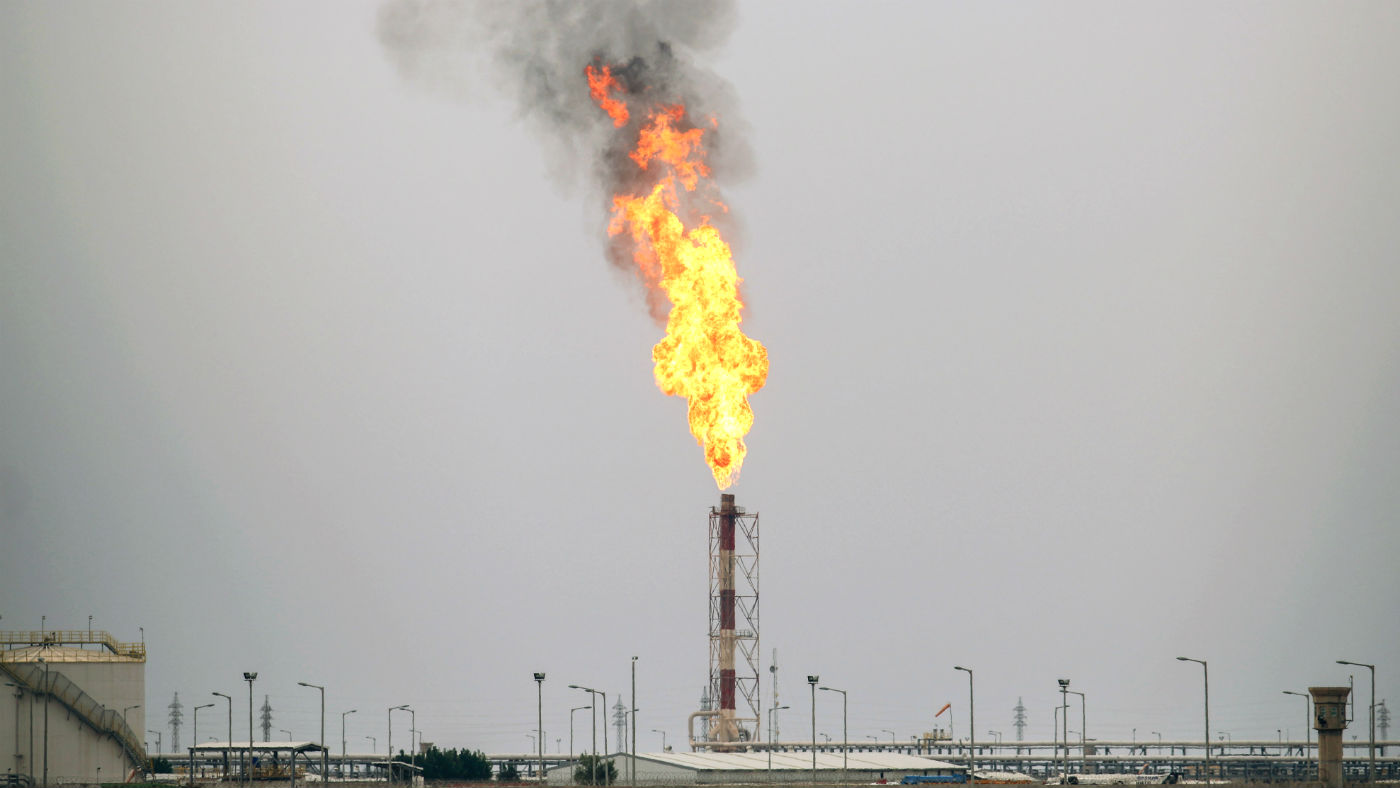 Global oil demand forecast lowered for 2020 and 2021
Global oil demand forecast lowered for 2020 and 2021Speed Read IEA report says jet fuel demand remains the major source of weakness
-
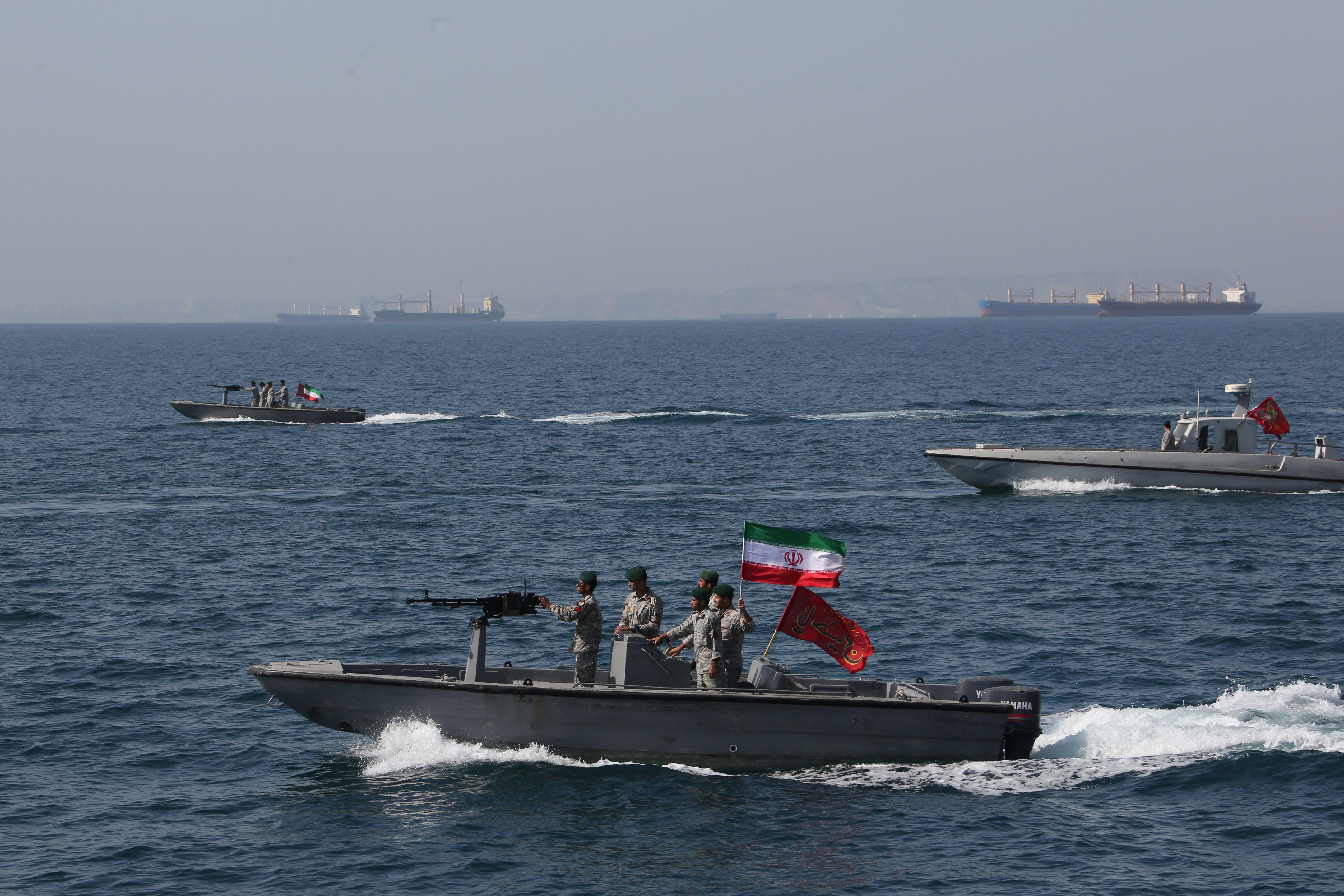 Are US-Iran tensions flaring again?
Are US-Iran tensions flaring again?In Depth Trump threatens military action over Twitter
-
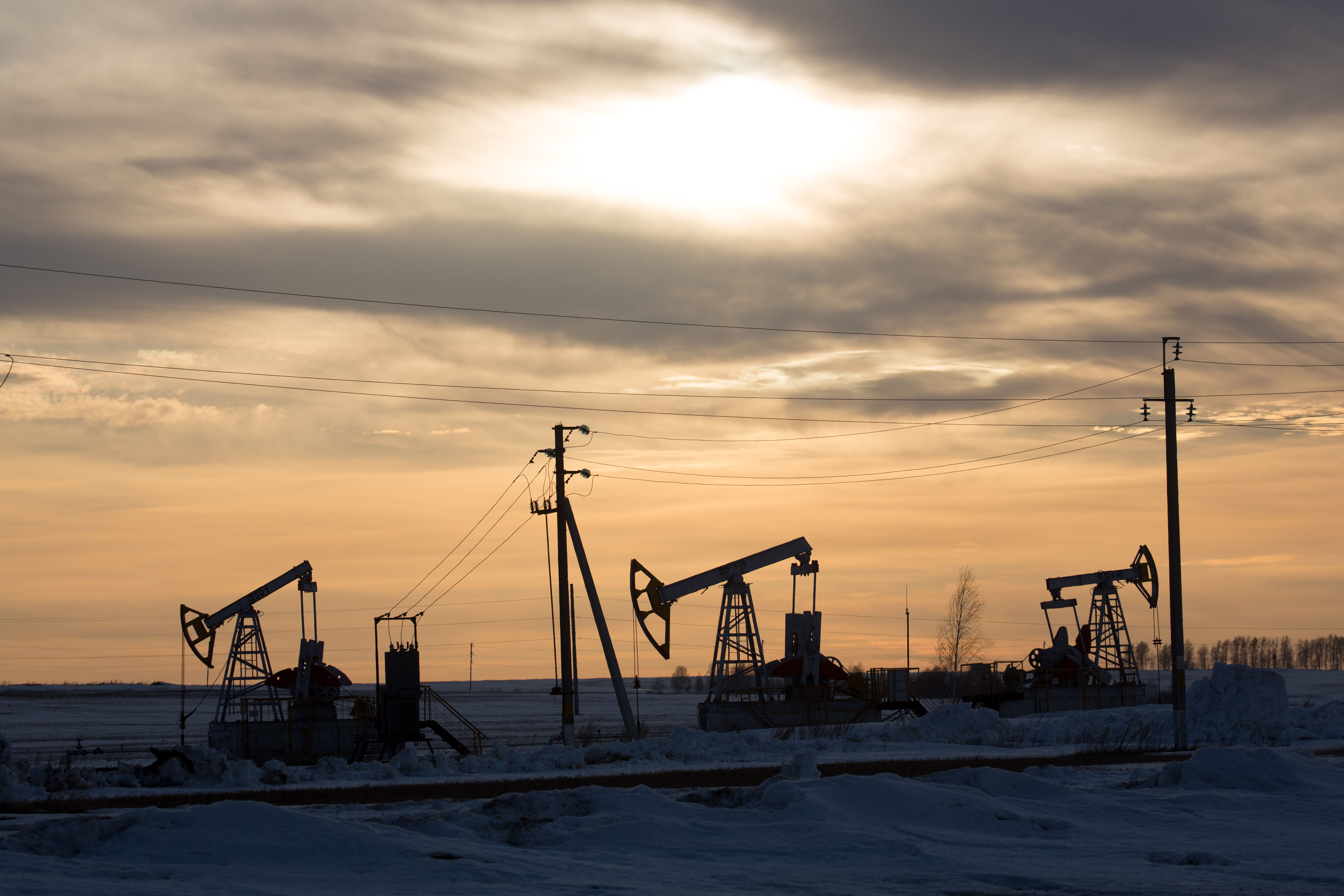 Can a deal be struck to raise oil prices?
Can a deal be struck to raise oil prices?In Depth Opec+ will convene today over video link in a bid to boost crude
-
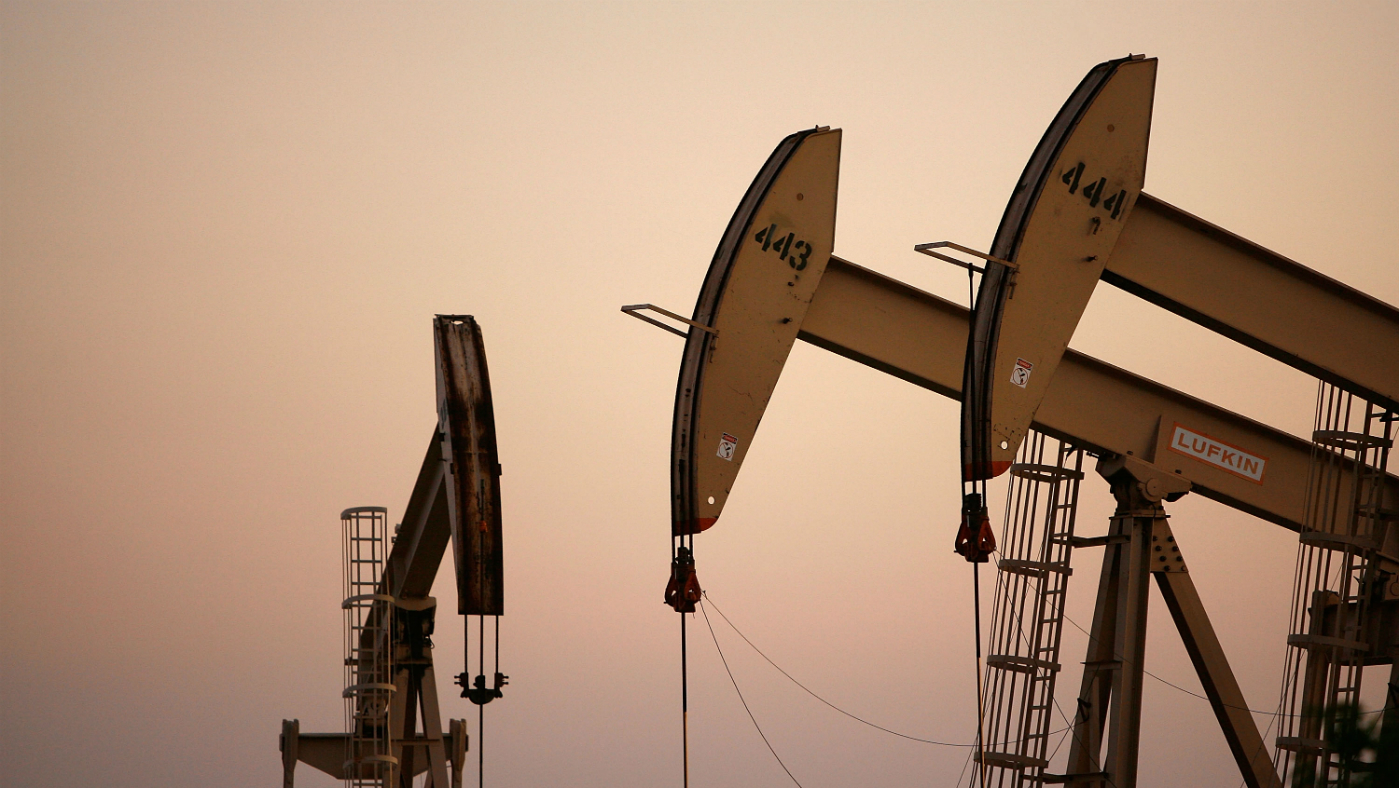 What do negative oil prices mean?
What do negative oil prices mean?In Depth Perfect storm of oversupply and storage shortages sees producers paying to get rid of US crude